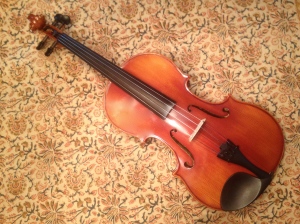The Power of Will, The Power of Genius
 We have become so accustomed to characterizing art works as the product of “genius” that we may just overlook other qualities of character needed by their creators. The world of music gives us melodies and textures of sound that have us marveling at their beauty, their cleverness, and their expressiveness. Yet what was required to bring those sounds to life, to bring that impact on us?
We have become so accustomed to characterizing art works as the product of “genius” that we may just overlook other qualities of character needed by their creators. The world of music gives us melodies and textures of sound that have us marveling at their beauty, their cleverness, and their expressiveness. Yet what was required to bring those sounds to life, to bring that impact on us?
In a new article from The Muse Dialogue, Kristine Rominski argues that although genius might be required, it is not the only necessary ingredient to great art. Perhaps not even the most important one. Rominski is a flutist currently in conservatory, and she offers a very personal look at the willpower behind musicianship. Her story considers the distractions of the contemporary age, the demands of consistent practice, and the content of character behind excellence.
For a special insight into the mind of the musician and the demands that they face in the solitude of the practice studio, join us for Kristine Rominski’s “The Power of Will, The Power of Genius” (click here to read full article).












